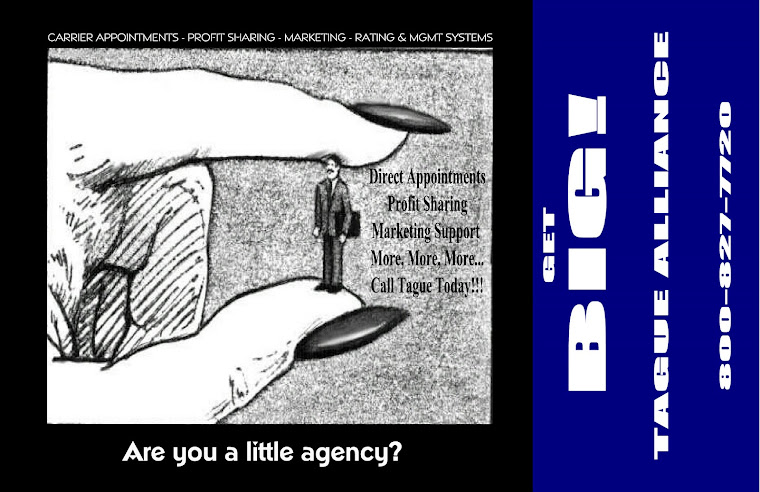Top of the mornin' Tague Alliance friends! I just saw this post from one of the SIAA leaders and thought is was a great reminder of how agents can be more successful in choosing how to grow their agencies rather than letting it happen by default. Check out this quick read and the ideas do focus on commercial lines, but the same principles apply to serving a more specific personal lines segment of the market as well.
Tony V
Shotgun or Rifle
What’s the best approach to building your business? One size does not fit all, and that goes double for independent insurance agencies. But no business development plan can ignore the need to go hunting for new clients. Which tool does your agency use?
Most agencies today use the shotgun approach. They market to all types of personal and commercial prospects and appeal to them based on the lowest price. Most of the shots miss the mark, but enough hit a target to keep food on the table. The agency builds a book of business of all types of personal and commercial clients with few common traits.
This approach works to a degree, but in reality costs the agency in the long run, as the agency has to learn how to service and manage the risk of many very different clients. Over time, this strains internal agency resources, and adds to the cost of servicing the book, and in many cases does not truly serve the need of those clients. Retention tends to be lower, as clients realize this, and the shotgun needs to be used more frequently to not only to grow the agency, but to maintain current revenue levels.
Using a rifle, or focusing on building an agency by targeting specific types of commercial and personal prospects, can be a little harder at the start. But in the long run, can build a growing, profitable agency that has to spend less time hunting.
Why? By focusing on a specific type of client an agency can attain many of these benefits:
- The agency develops knowledge of the coverage needs of a specific class of business and builds a reputation as an expert in the class
- The agency gains business knowledge of the class and learns its language, challenges, and emerging issues – the agency can talk the talk
- The agency can design a marketing campaign aimed at a specific group
- Referrals increase as the agency builds a reputation among members of the group - at some point prospects begin to seek your agency out
- Opportunities to join and speak at trade associations to build visibility in the class – and may offer free publicity via newsletters, blogs, or webinars
- Internal staff also builds expertise in the class, and over time this increases retention and reduces the cost of servicing the business
- Carriers recognize the expertise of the agency and treat the agency different than the 100’s of others submitting business via easier underwriting and the process of building a book becomes more efficient
- Program development becomes a possibility as the book grows giving the agency even more clout in the marketplace
- Your reputation and expertise give you an unfair competitive advantage over the average main street agency
How do you get started? What type of client to you enjoy doing business with? People like doing business with people they like. What’s your passion? Community service? Plenty of Social Services agencies in most every region. Arts? Tons of museums, local arts organizations. Look at the types of clients that are in your region. Learn what your competition is doing. Go where others don’t want to.
A major trend to be aware of is that the Insurance Industry is moving rapidly towards specialization in commercial lines and just beginning to in personal lines. Program business is the fastest growing area of our industry and this trend is accelerating. The markets are there for almost any class of business or type of account you want to target.
One of the best pieces of advice I received early in my career was to go after the dirty business – clients like roofers, excavators, sewer and septic contractors, and other tough construction classes – because most agents did not want to get up early, and didn’t like getting dirty. It was true. I joined the local and state associations, got up early, went to the meetings, and in a short time was becoming a specialist in the class and building a good book of business.
Pick up a rifle and go hunting!
Written by
Bill Fahy
President
SIAA Alliance Programs
President
SIAA Alliance Programs




No comments:
Post a Comment
Note: Only a member of this blog may post a comment.